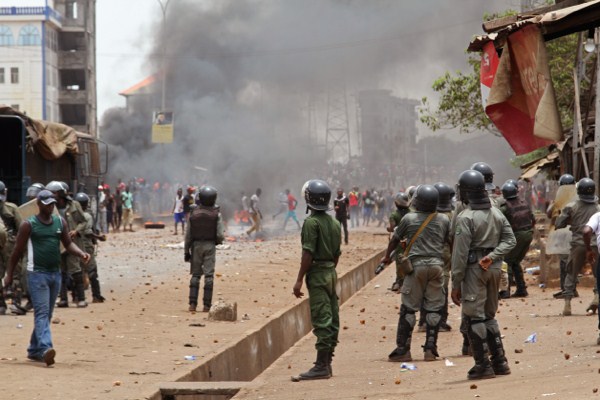Clashes between the opposition and security forces continued for a second day in Guinea’s capital. In an email interview, Mohamed Saliou Camara, a professor of history and international relations at Embry-Riddle Aeronautical University, discussed domestic politics in Guinea.
WPR: What have been the major issues of contention between the government and the opposition during Guinea’s political transition back to democracy, and where do they stand in the run-up to this year’s presidential election?
Mohamed Saliou Camara: Two of the major issues of contention between President Alpha Conde’s government and the opposition are national dialogue and political inclusion. Guinea returned to constitutional order in 2010 through international mediation, in which the opposition was represented by the coalition Forum des Forces Vives. However, during the presidential election in June 2010, ethnic violence undermined efforts at promoting national dialogue and political inclusion.

